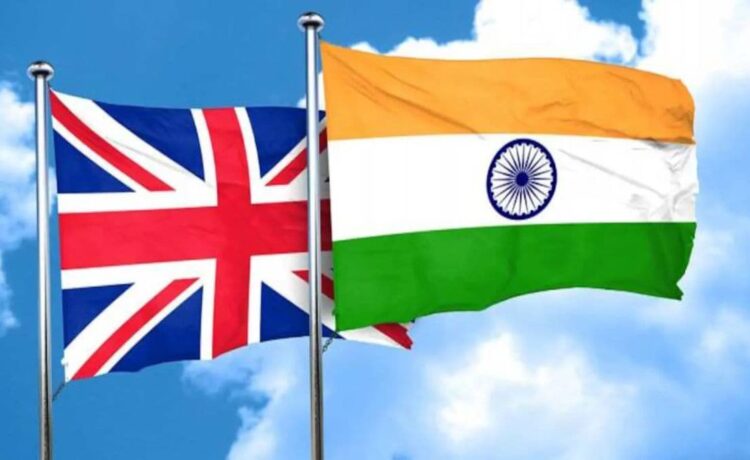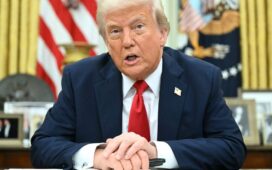India and the UK have been working towards a comprehensive trade deal to boost economic cooperation in key sectors such as goods, services, technology and investment. The upcoming discussions are expected to address key concerns and find common ground to move the negotiations forward
read more
In April 2022, a confident Boris Johnson pledged to secure a UK-India free trade agreement (FTA) by Diwali that year. However, after three Diwalis, three prime ministers, a general election, and numerous challenges, Keir Starmer’s administration is now geared to finalise the long-awaited deal.
Following a bilateral meeting with Indian Prime Minister Narendra Modi during the G20 Summit in Brazil, British Prime Minister Keir Starmer announced the resumption of FTA negotiations between the two countries set to restart in 2025.
According to reports, UK Minister for Trade Douglas Alexander is expected to visit India and meet Union Minister for Commerce & Industry Piyush Goyal. The two leaders will discuss ways to accelerate the FTA talks, which have been under negotiation for a long time.
However, achieving a comprehensive FTA will be no simple task. India is known for its protectionist trade policies and Goyal is regarded as one of the world’s most formidable negotiators.
Since negotiations kicked off in January 2022, they have been beset by difficulties with both sides refusing to budge on key issues including visas and better access for service firms.
India-UK FTA negotiations were launched on 13th January 2022. Thirteen Rounds of negotiations have been held till December 2023. However, negotiations were paused in May 2024 due to the UK elections. As Alexander heads to Delhi for the 15th round, three major obstacles loom over the discussions.
As Alexander heads to Delhi for the 15th round, three major obstacles loom over the discussions.
India seeks balanced immigration approach
Immigration remains a contentious issue between the U.K. and India. India has pushed for greater business mobility, including more visas for its professionals and a social security agreement to exempt Indian workers from U.K. national insurance contributions. Karan Bilimoria, co-chair of the All-Party Parliamentary Group for India, emphasized that India seeks to address UK skills shortages, particularly in healthcare and IT, through a balanced immigration approach within the FTA framework.
However, the Labour government faces pressure to maintain a strict stance on migration, especially with the rise of the right-wing Reform UK party, led by Brexit architect Nigel Farage. While some advocate for separating certain visa categories from immigration statistics, the previous Conservative government had firmly opposed linking migration and visas to the FTA. Former Trade Secretary Kemi Badenoch reiterated this position, citing it as a reason the deal remained unsigned.
India, UK at odds over carbon border tax
Another sticking point is the UK’s proposed Carbon Border Adjustment Mechanism (CBAM), which would impose tariffs on carbon-intensive imports like steel, aluminum, and cement by 2027. India has strongly opposed similar EU plans, warning that such measures could harm manufacturing and vowing to challenge them at the WTO. India has similarly urged the U.K. to exempt its firms from CBAM.
Bilimoria highlighted the need to consider India’s perspective on environmental levies while supporting its climate goals. An Indian trade adviser confirmed that CBAM is a significant concern, with discussions ongoing both within and outside FTA talks. While some suggest addressing CBAM through the broader U.K.-India 2030 roadmap, Indian negotiators face an uphill battle in securing exemptions, especially as the U.K. invests heavily in green steel production.
India’s protectionist policies hinder UK investment
The UK is eager to unlock investment opportunities, and a bilateral investment treaty with India could be transformative for the City of London. However, limited legal protections for new projects have hindered investment flows. India terminated several bilateral investment treaties in 2016 to safeguard its regulatory autonomy, and while both sides aim to re-establish such a treaty, progress is slow.
The City of London is advocating for provisions allowing firms to challenge discriminatory policies in court, but India remains cautious due to a surge in investor claims over the past 15 years. Also, India’s protectionist policies restrict market access for British financial and professional services, which account for 56% of UK exports to India. While recent reforms have eased some restrictions, such as raising the foreign investment cap for insurers, profits must still be reinvested locally.
Data regulation is another hurdle with UK businesses seeking freer data flows without costly local server requirements. India’s traditionally protectionist stance on data remains a top concern for the UK tech sector.
Despite these challenges, both nations took a step forward with the signing of the Technology and Security Initiative (TSI) in July 2023, focusing on areas like AI, biotech, and critical minerals. However, defining concrete priorities remains a work in progress.





